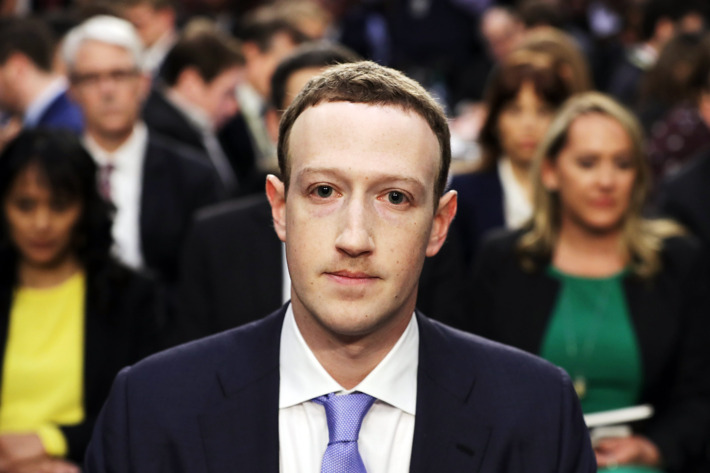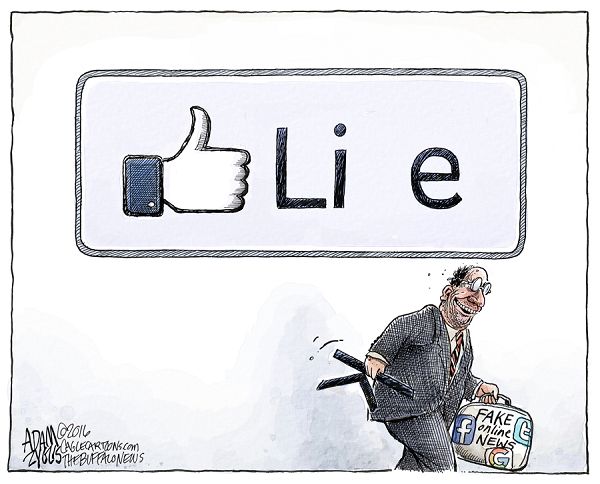I imagine that when Mark Zuckerberg founded “The Facebook” in his dorm room in 2004 he never foresaw that one day he’d be sat in front of US Congress for five hours answering questions about the responsibilities that his company has to their 2.2 billion active monthly users. The Cambridge Analytica scandal brought two key issues to light which warranted answers from Zuckerberg. The first being the use of the platform for the spread of fake news and hate speech. The second looking at the data that Facebook takes from their users.

The Role of AI in Censorship
Much of the regulation being called for centered around Facebook creating AI solutions to spot people trying to manipulate the site. The thought is that this could move toward solving the problems of hate speech and fake news on the platform. However, this raises the issue of censorship, as automated content filters could potentially result in some people with marginalized views being pushed offline.
“We have a whole AI ethics team that is working on developing basically the technology, it’s not just the philosophical principles.” – Mark Zuckerberg
With Facebook being based in Silicon Valley, an extremely left-leaning area in the left-leaning state of California, the issue of right-wing views being filtered out from the platform undoubtedly represents significant issues. There is a possibility that algorithms could be developed with bias, either intentionally or unintentionally, creating a “filter bubble” for users on the platform, thus skewing people’s perceptions of reality.
Facebooks Handling of User Data
Throughout the hearing, Zuckerberg insisted that users have “complete control” over their data, citing posts and photos as examples to make his point. However, this fails to acknowledge the vast amounts of data that Facebook takes from their users based on their behaviour, primarily without their knowledge or consent and certainly without opportunity for meaningful control.
Zuckerberg also claimed that Facebook doesn’t sell their user’s data. Despite the fact that this may technically be true, this only tells half the story. Facebook and their business model are centered around monetizing user data and one thing Zuckerberg failed to do was address this issue.

How did he do?
For those wondering how well Zuckerberg performed, one need only look at the performance of Facebook’s share price yesterday alone. An increase of 4.5% led to an increase in the founder’s personal wealth of $2.7 billion, to a total of $67 billion. Not bad for five hours work.
However, this should come as no surprise. One of the main reasons that Zuckerberg subjected himself a barrage of questioning yesterday and again today, is to reassure investors that the company is dealing with the crisis and the fallout from the Cambridge Analytica scandal.
Additionally, following the popularity of the #DeleteFacebook hashtag, Zuckerberg needed to reassure users that he cared about their data and their privacy. The final and arguably, the most important reason for Zuckerberg’s appearance was to appease many of the political figures who have come out calling for increased regulation on the social media giant. While he agreed with some of the senators who said that regulation could benefit the social media industry, the underlying message from him was that the company can regulate themselves.
Final Thoughts
Overall, Zuckerberg seemed deeply sorry for the whole debacle. Whether that was genuine or whether he was just sorry that he got caught is an entirely different debate. The idea that Facebook was unaware that there were people who were systematically using their platform for evil is unlikely at best. His commitment to lead a more responsible company, by employing moderators to police the site seems good in principle, however putting this into practice is another thing.
Despite a vast war-chest at his disposal, compliance costs money and the potential for regulation poses issue for Facebook. Successfully achieving a balance of maximizing shareholder value whilst ensuring that they don’t burn bridges with every other stakeholder in the process requires serious thought for Zuckerberg and “his team” going forward.
.
